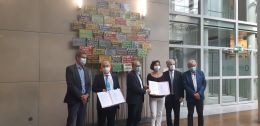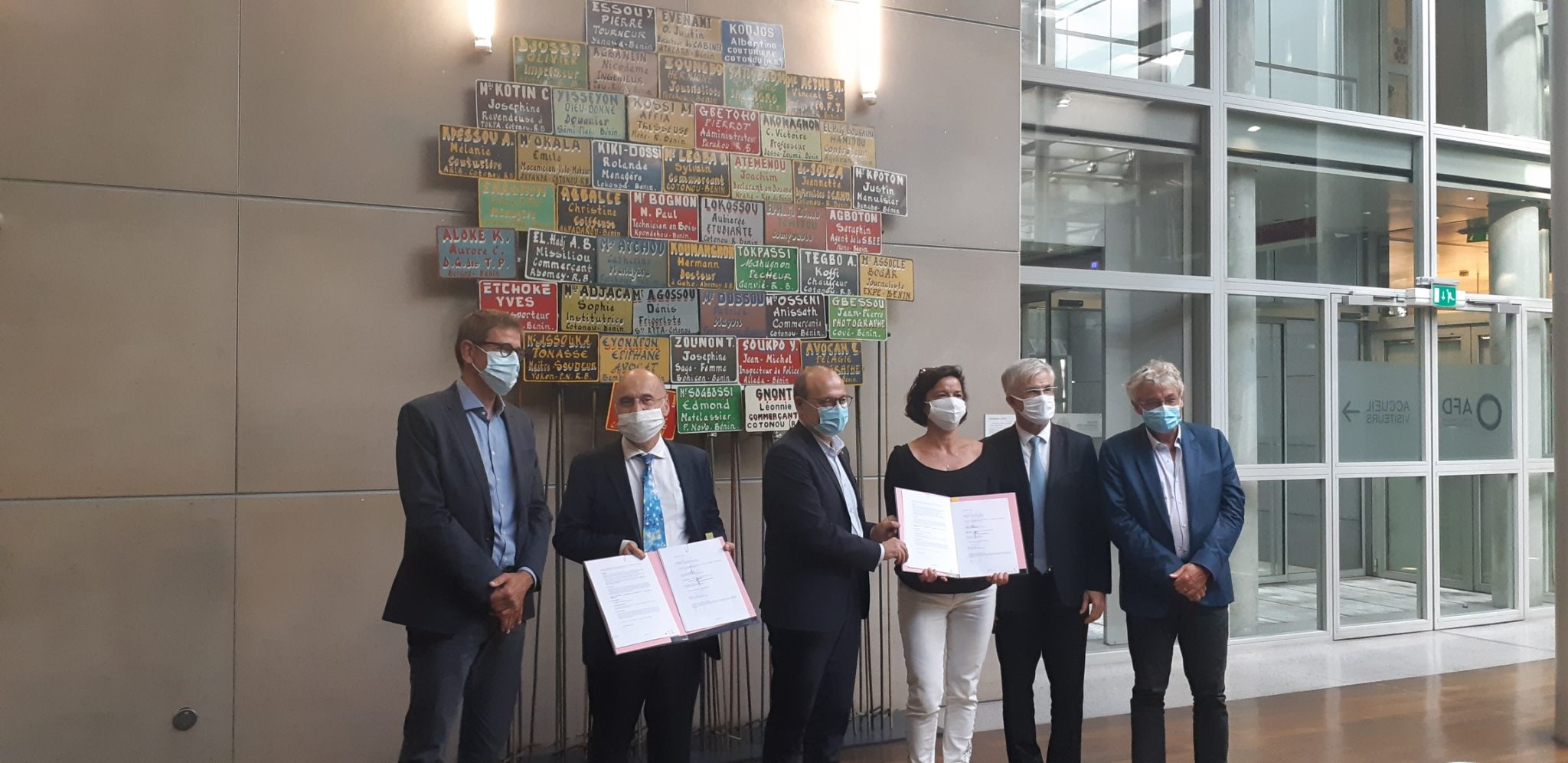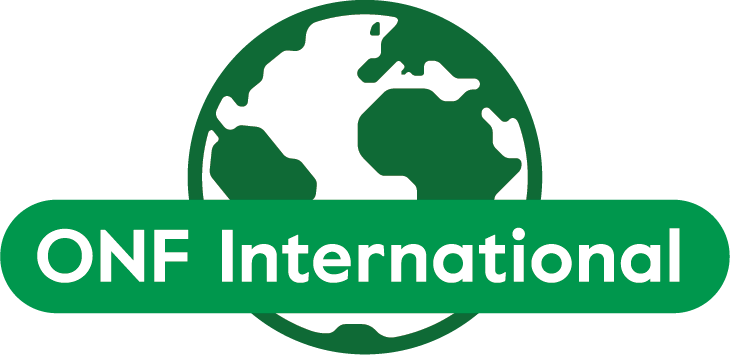TERRAMAZ or how to tackle the root causes of deforestation in the Amazon?


Signature of the agreement on 10/09/2020 at AFD, from left to right: Frédéric Appolin (Director of AVSF), Pierre-Emmanuel Leclercq (Deputy Director General of ONFi), Rémy Rioux (Director General of AFD), Marie-Gabrielle Piketty (Director of the TerrAmaz Project – CIRAD), Philippe Lacoste (Director of Sustainable Development at the MEAE/DGM), Michel Eddi (CEO of CIRAD).
Deforestation in the Amazon, partly generated by deliberate fires, is the product of a chain of economic exploitation for which we are all more or less responsible.
The TerrAmaz project aims to demonstrate that it is possible, locally, to sustainably develop rural Amazonian territories according to models that reconcile the preservation of the forest and biodiversity while guaranteeing quality of life for the people who live there. The approach will combine the strengthening of territorial planning and the development of efficient agroforestry and silvo-pastoral techniques as alternatives to the production systems historically predominant in these regions.
Coordinated by CIRAD, this project is also being conducted by ONF-International and its branches ONF Brasil and ONF Andina, and the NGO Agronomes et Vétérinaires Sans Frontières (AVSF). It is fully financed by the AFD (Agence Française de Développement), for 4 years, with 9.5 M€ divided between the components of innovative territorial engineering, applied scientific research, and local implementation on five pilot territories in Brazil, Colombia, Ecuador, and Peru.
These pilot sites, where most of the consortium members have already been active for a long time, are spread over several areas of the Amazonian forest with specific territorial dynamics. They will have to produce concrete and reproducible lessons while adapting to local contexts, such as technical and economic reference systems for sustainable agricultural, livestock and forestry systems, territorial certification methods for sustainable transition based on effective participation by local populations, and an evaluation of the ecosystem services provided by this so-called “landscape” approach.
Their success is based on the commitment of municipal teams or regional governments, the strong mobilisation of local actors and consultation with the population.
ONFI contributes to the TerrAmaz project:
- FORLAND, a participatory land management platform developed with CIRAD and the Polytechnic University of Zürich. On a single geo-referenced platform, FORLAND brings together tools for planning and monitoring the territory (deforestation and complementary impact indicators), predictive scenarios for the development of the rural territory, the actions undertaken there and tools for involving the territory’s inhabitants and their representatives in the decision-making process. FORLAND should enable the certification of 4 of the 5 experimental territories of the TerrAmaz project.
- two pilot territories: Fazenda São Nicolau and the municipality of Cotriguaçu in Mato Grosso (Brazil), and the department of Guaviare (Colombia), in continuation of the Caminemos project.
The Fazenda São Nicolau, which has been owned by ONF Brasil for 21 years on the initiative of Peugeot and ONF, is a remarkable wilderness reserve where new species are discovered every year, it is a carbon sink (more than 2 million trees of native species planted thanks to the support of Peugeot and ONF), a testing ground for agro-forestry, the sustainable exploitation of timber and non-timber forest products (1st sustainable management plan for Brazil nuts) and scientific research. It is also an example of:
- Local integration, especially with the population of landless peasants – resettled in the neighbourhood by the agrarian reform policy – who protect it today from possible intruders;
- Long-term cooperation with the federal administration in Mato Grosso;
- collaboration with the local administration and NGOs that have been established locally for over 20 years, such as the Brazilian NGO ICV (Instituto Centro de Vida).
Guaviare, the Amazonian forest department of Colombia, is an example of the fight against the determinants of deforestation through agricultural economic development (coffee, cocoa, pineapple, dairy cows) as an alternative to cocaine and beef cows. ONF Andina, a subsidiary of ONFI in Colombia for 20 years, works with 400 families, tomorrow many more thanks to TerrAmaz, to finance these intensive alternative crops to avoid deforestation or involvement in civil conflict.
ONF Andina has been working there for several years with the Guaviare state administration on European Peace Funds, which are mainly from France.
